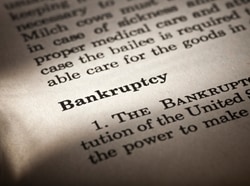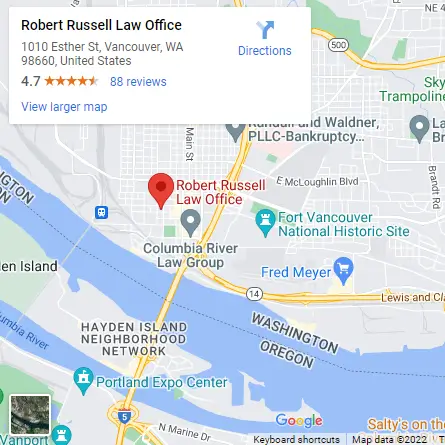How Can We Help?
What Debts Are Discharged In A Chapter 13 Bankruptcy?
The short answer is that almost all “usual” debts are discharged in Chapter 13. There are a few exceptions. Here are the details.

A chapter 13 debtor is entitled to a discharge upon completion of all payments due under the Chapter 13 plan as long as the debtor: (1) certifies that all “domestic support obligations” that came due prior to making such certification, if any, have been paid; (2) has not received a discharge in a prior Chapter 13 (filed within the past two years before the current case was filed) or in a prior Chapter 7, 11 or 12 case (filed within last four years before the current case was filed); and (3) has completed an approved course in post-filing “financial management.” 11 U.S.C. § 1328.
As a general rule, the discharge releases the debtor from all debts provided for by the plan or disallowed (under §502) with the exception of the debts referenced in 11 U.S.C. § 1328, which include:
- debts provided for under §§ 1322(b)(5), i.e., certain long term obligations where payment extended beyond the period of the plan (such as a home mortgage);
- certain taxes [§§ 507(a)(8)(C); §§ 523(a)(1)(B), (1)(C)];
- debts owed to creditors not notified of the bankruptcy in time to file a claim for payment [§§ 523(a)(3)];
- debts for alimony/spousal maintenance or child support [§§ 523 (a)(5)];
- debts for most government funded or guaranteed educational loans or benefit overpayments [§§ 523 (a)(8)];
- debts arising from death or personal injury caused by the debtor’s operation of a motor vehicle, vessel, or aircraft if such operation was unlawful because the debtor was intoxicated from using alcohol, a drug, or another substance; [§§ 523 (a)(9)];
- debts for restitution or a criminal fine included in a sentence on the debtor’s conviction of a crime [§1328(a)(3)]; and
- debts for restitution or damages awarded in a civil action against the debtor as a result of willful or malicious injury by the debtor that caused personal injury to an individual or the death of an individual [§§1328(a)(4)].
The debts listed above are, generally, never discharged. There are two types of debts that might not be discharged if a creditor acts fast enough. A creditor that believes its debts are the result of fraud [§§523(a)(2)] or breach of a fiduciary duty [§§523(a)(4)] must file a lawsuit alleging its claim meets that standard within the 60 days following the 341 Meeting. These types of debt are discharged in Chapter 13 unless the creditor timely files the lawsuit and convinces the court that the debt fits the requirements for nondischargeability. 11 U.S.C. § 1328, 523(c); 11 USC §§ 523(a)(2) [for debts resulting from money or property obtained by false pretenses], 11 USC §§ 523(a)(4) [debts for fraud or defalcation while acting in a fiduciary capacity]; Fed. R. Bankr. P. 4007(c).
How does a Chapter 13 discharge differ from a Chapter 7 discharge? Certain debts that are not dischargeable in Chapter 7 are dischargeable Chapter 13. (Sometimes, that is the reason a person might choose to file a Chapter 13 over a Chapter 7.) Debts dischargeable in a Chapter 13 but not in Chapter 7 include debts for willful and malicious injury to property (as opposed to a person), debts incurred to pay nondischargeable tax obligations, and debts arising from property settlements in divorce or separation proceedings.
You will note that there is one debt dischargeable in Chapter 7 that is not dischargeable in Chapter 13 – certain “long term” debt, i.e. “any unsecured claim or secured claim on which the last payment is due after the date on which the final payment under the plan is due.” 11 USC §§ 1328((a)(1), 1322(b)(5). This can be a complicated analysis.
After a discharge is granted on dischargeable debts, the former (I say “former” because the debt is no longer owed) creditor is prohibited from taking any collection action against the debtor. A creditor can still enforce any lien it may have against property/collateral. For example, if a debtor does not pay for a financed car in a Chapter 13, the debt may be discharged but the creditor can still repossess the car/collateral for nonpayment – but the creditor can never legally pursue the debtor for payment of the (discharged) debt.
One other point that needs to be made is that you can file a Chapter 13 case to control debts/creditors even if you are not entitled to receive a discharge.
If you have any further questions, comments or concerns, please contact us.


